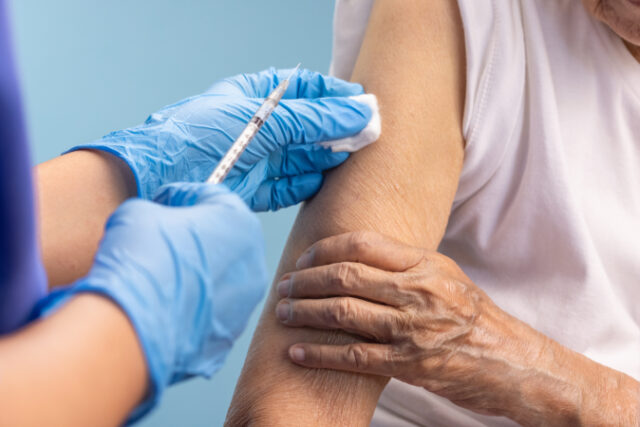
The Food and Drug Administration and Centers for Disease Control and Prevention have made booster recommendations for all three COVID-19 vaccines available in the U.S., including authorizing a mix-and-match option for booster shots from Johnson & Johnson (J&J), Moderna or Pfizer.
For people who received Moderna or Pfizer vaccines, booster vaccinations are recommended 6 months or more after finishing the initial two-dose series for those age 65 and older and for younger adults 18 and older who work or live in high-risk settings or have underlying medical conditions that increase their COVID-19 risk.
For people who got the J&J COVID-19 vaccine, booster vaccinations are recommended for those 18 and older and who were vaccinated two or more months ago.
“What mix-and-match means is that regardless of what you got for your primary series, you could get any of the other three vaccines available for use in the U.S. as your booster if you’re eligible for a booster,” says Dr. Gregory Poland, head of Mayo Clinic’s Vaccine Research Group.
So how do you know which booster vaccination to choose?
“All of the boosters will dramatically boost your antibody response,” says Dr. Poland. “I would make the decision about a booster based on how did you respond to whatever you got originally? And are there any unique risk factors that you have?”
People who responded well to the first vaccine with minimal side effects can choose to get the same brand for their booster vaccination. But there are reasons someone might choose a different vaccine. For example, a younger man who initially got the Moderna or Pfizer vaccine might want a J&J booster, because the mRNA vaccines are linked with a slight risk of heart inflammation called myocarditis. And a woman under age 50 might prefer to get a Moderna or Pfizer booster, because the J&J vaccine is linked with a slightly higher risk of a rare blood clotting condition in younger women.
In this Mayo Clinic Q&A podcast, Dr. Poland walks through the recent booster recommendations and the likely timeline for COVID-19 vaccine approval for kids ages 5 — 11.
Watch:
“Courtesy: Mayo Clinic News Network.”
Republished with permission[/vc_message]
Disclaimer
The information contained in South Florida Reporter is for general information purposes only.
The South Florida Reporter assumes no responsibility for errors or omissions in the contents of the Service.
In no event shall the South Florida Reporter be liable for any special, direct, indirect, consequential, or incidental damages or any damages whatsoever, whether in an action of contract, negligence or other tort, arising out of or in connection with the use of the Service or the contents of the Service. The Company reserves the right to make additions, deletions, or modifications to the contents of the Service at any time without prior notice.
The Company does not warrant that the Service is free of viruses or other harmful components












